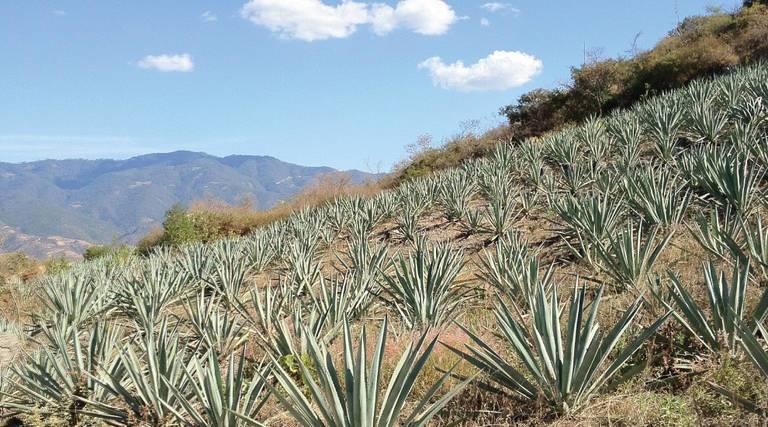
Still have a headache from that Cinco de Mayo celebration? The hangover the Earth is suffering from tequila and mezcal production has lasted far longer.
“Leaves a bitter taste on water and soil,” Paula Alvarado mused of the industry's effects on the blog Treehugger several years ago. Deforestation, excessive wastewater runoff and the increased use of chemicals to sustain the agave crucial for these spirits’ production are among the problems saddling the sector across Mexico. And some reports predict a shortage of agave in the coming decade, largely due to unsustainable farming practices as the popularity of mezcal and tequila continue to surge.
Sombra Mezcal, an artisan distillery located in Oaxaca, Mexico, says its business practices can offer lessons for this industry – from the initial cultivation of the agave to the moment at which it is bottled.
Similar to wine production, appellations help define the various types of mezcals produced across Mexico. In the case of Sombra, the key ingredient is agave espadin, which thrives near Sombra’s distillery at elevations reaching 8,000 feet above sea level.
The process of growing this agave varietal is long and labor-intensive. First, the plants are cultivated on small plots in the villages of San Juan and and San Luis del Rio. After two years, the agave is uprooted, the plants’ roots are cut off and they are left in shade for about two weeks. Next, they are transplanted to the hillsides above these villages, and are finally harvested after another four years.
After they are cultivated, the hearts of the agave plants are placed into a covered rock-lined pit oven, where they are slowly baked over an oak hearth for two days. Next, the hearts are crushed by a millstone before being placed in vats and left to ferment for eight days. The final process occurs in copper stills, in which the mezcal is heated, vaporized and condensed before it is finally bottled.
According to Davos Brands, the company that distributes the product, the entire process involved with making Sombra Mezcal is sustainable.
Much of the water required for the distillery’s operation is collected from rainfall and stored in underground tanks. Firewood used for cooking the agave is only sourced from certified forests. The bottles are upcycled. And nothing goes to waste: What cannot be composted is baked into adobe bricks. As for energy, Davos says a solar power installation atop the distillery’s roof will soon provide electricity.
The operation has a fair trade component as well: Funds from Sombra provide for local schools as well as the arts. Meanwhile, the company boosted its social enterprise chops with its recent participation in the 1 Percent for the Planet program.
Other makers of Mexican spirits say they are cleaning up their supply chains as well.
The popular brand Patrón, for example, says it is doing more to prevent wastewater effluent from entering local streams and gives compost derived from its byproducts to local farmers. One distiller in California is trying to produce the first tequila north of the border in a quest to create a more responsible product – and, if it succeeds, it could also provide sustainable materials such as sugars and fibers for industry as well.
But Sombra Mezcal has a holistic approach that benefits not only the environment, but also local communities – providing a textbook case for sustainable development as well as environmental stewardship.
Image credit: Sombra Mezcal

Leon Kaye has written for 3p since 2010 and become executive editor in 2018. His previous work includes writing for the Guardian as well as other online and print publications. In addition, he's worked in sales executive roles within technology and financial research companies, as well as for a public relations firm, for which he consulted with one of the globe’s leading sustainability initiatives. Currently living in Central California, he’s traveled to 70-plus countries and has lived and worked in South Korea, the United Arab Emirates and Uruguay.
Leon’s an alum of Fresno State, the University of Maryland, Baltimore County and the University of Southern California's Marshall Business School. He enjoys traveling abroad as well as exploring California’s Central Coast and the Sierra Nevadas.














